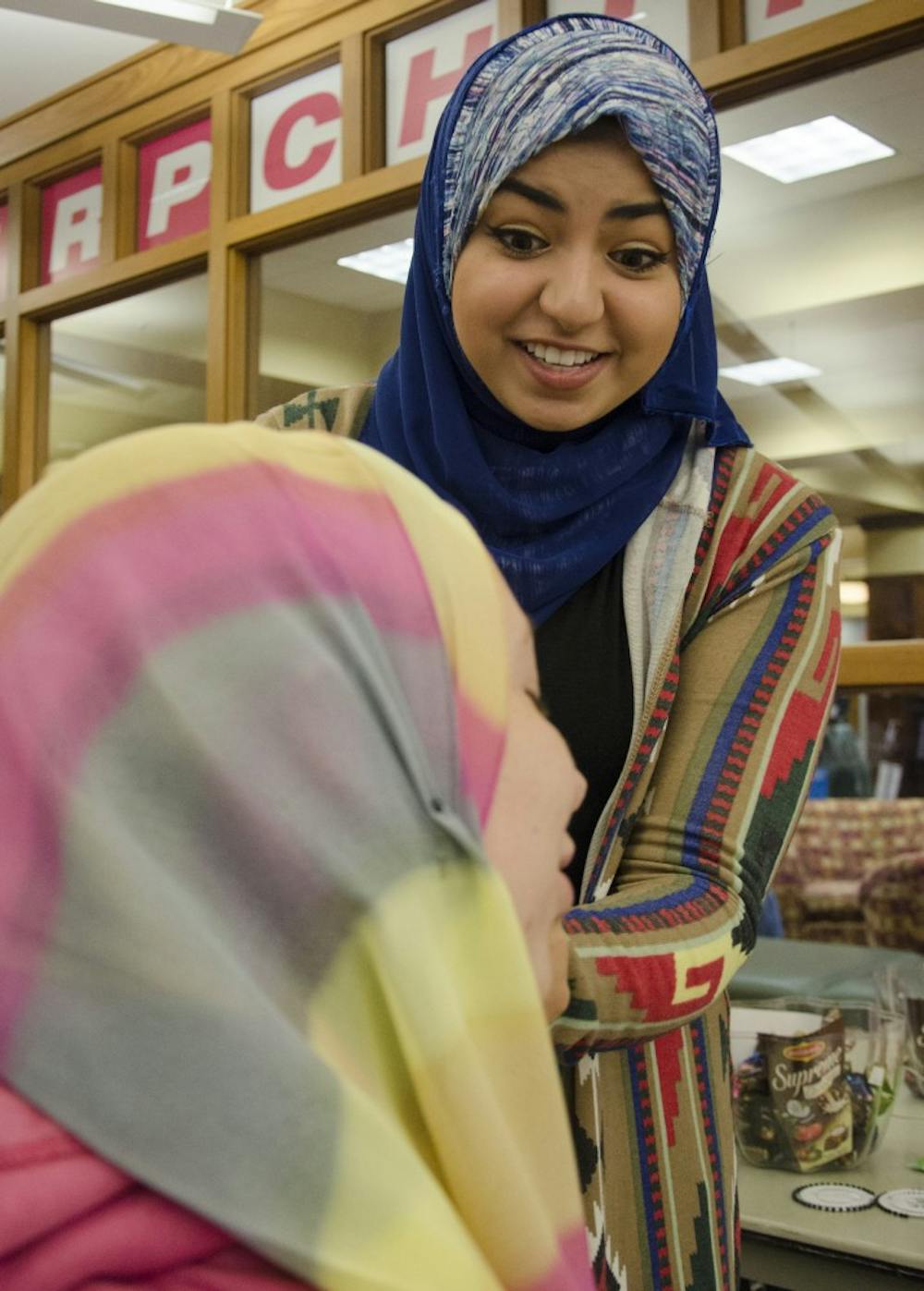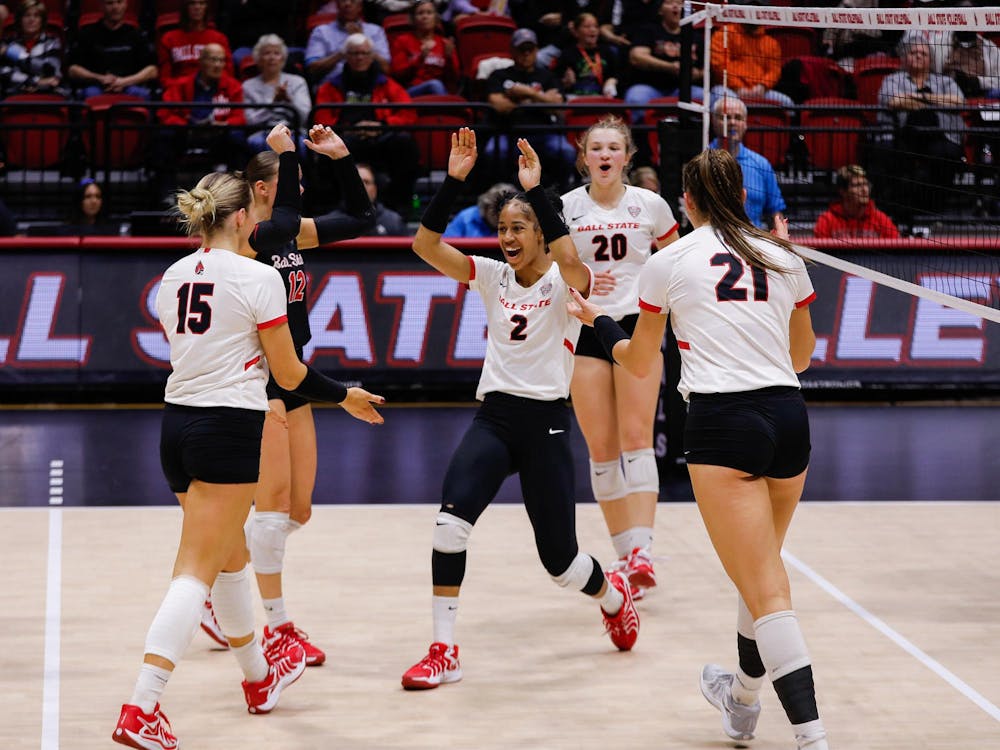Islam Awareness Week events
-Experience Hijab
Noon to 3 p.m. on April 7 in the Atrium. Free scarf!
-Islam and Feminism
6:30 to 7:30 p.m. on April 7 in the Art and Journalism Building, room 175. Catered by Damask Cafe.
-Inside Islam: What a Billion Muslims Really Think
6 to 7 p.m. on April 8 in the Art and Journalism Building, room 175
-Ask a Muslim
6 to 7 p.m. on April 9 in the Whitinger Building, room 144
Students will have the opportunity to try on and keep hijabs regardless of their religion, during the university’s Islam Awareness Week.
The week of events, hosted by the Muslim Student Association, will focus on broadening discussion, awareness and inclusion through April 9.
“People may have Muslim friends that they are able to ask too, but not everyone has a Muslim friend. So we want to be here as that Muslim friend,” Muslim Student Association President Noor Ayesha said.
From noon until 3 p.m., MSA members will give out free scarves for people to wear as hijabs in the Atrium during their Experience Hijab event. The MSA members will also show people how to wear the hijabs.
Wearing one is a personal decision based on faith for Muslim women. The hijab is also shrouded in mystery and receives many comments and questions, Ayesha said.
"[Once, someone] asked why some people get offended when they’re asked about their hijab, and I don't know anyone who gets offended, but I think it’s similar to ... [when] you ask someone who wears tattoos what every single one means. It’s very personal,” Ayesha said.
In addition to the hijab experience, there will be a panel discussing feminism in the Islam faith. This will be a discussion of Eastern and Western cultures as they apply to women’s rights.
To take the experience further, Rachael Collins, a non-Muslim MSA member, paired with a member to show the documentary “Inside Islam: What a Billion Muslims Really Think” on the night of April 6.
“The film directly addresses extremism," Collins said. "They show research from studies that there are a billion people who practice [Islam] and most of them don’t support this ideology and belief system. The diversity that you see in the Christian faith is the same kind of diversity you see in the Muslim faith."
Collins, a clinical mental health counseling graduate student, joined MSA as a part of her diversity training. She chose MSA as an opportunity to learn more about the culture and challenge any biases she had.
“There’s a difference between the Islamic faith and the Islamic culture and tradition, and that was a big one," Collins said. "The women in MSA are very strong, independent, smart and capable, so maybe some of the ideas that I had about gender roles in the faith were really challenged."
The final event of the week continues to challenge biases with Ask A Muslim, a four-person panel of two Muslim students and two Muslim professionals. The purpose of the panel is to ask any questions about the faith, Ayesha said.
“[The panelists will] tell you a little about their lives and where they come from and you can ask them questions like, ‘Why do you wear that thing on your head?’ Some people choose to be ignorant and some just haven’t been exposed, and we want to provide that exposure,” Ayesha said.
The panel will also take a moment to recognize the Chapel Hill shooting in February, during which three Muslims were killed. One purpose of the panel is to diffuse any misconceptions that can cause violence like the Chapel Hill incident, Ayesha said.
“We want to bring to light these events ... eliminate the ignorance. We don’t want to take a political approach, we just want to show the human side," Ayesha said. "These are people who were doing great things for the world and they died."
|
Islam Awareness Week events Meet and Greet Noon to 3 p.m. on April 6 in the Atrium. Free henna, catered by Damask Cafe Experience Hijab Noon to 3 p.m. on April 7 in the Atrium. Free scarf Islam and Feminism 6:30 to 7:30 p.m. on April 7 in the Art and Journalism Building, room 175. Catered by Damask Cafe. Inside Islam: What a Billion Muslims Really Think 6 to 7 p.m. on April 8 in the Art and Journalism Building, room 175 Ask a Muslim 6 to 7 p.m. on April 9 in the Whitinger Building, room 144 |





